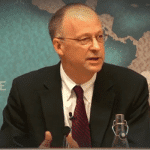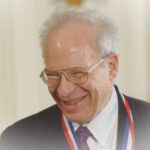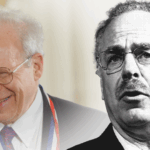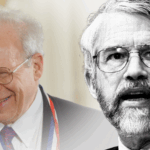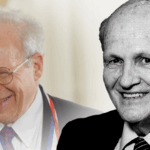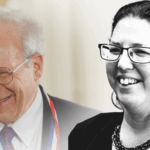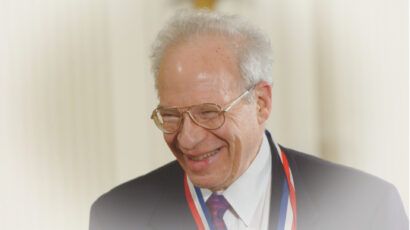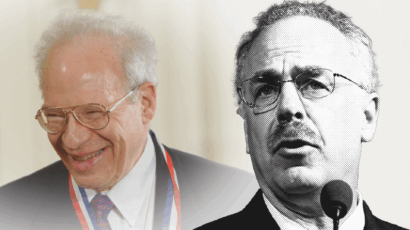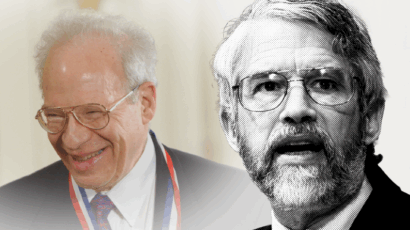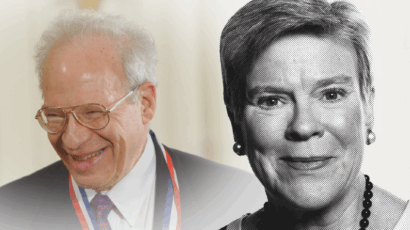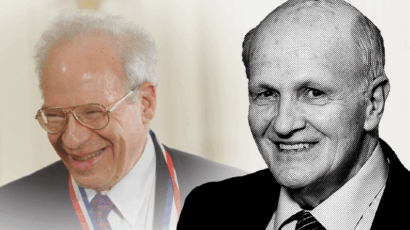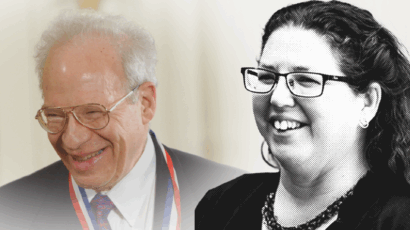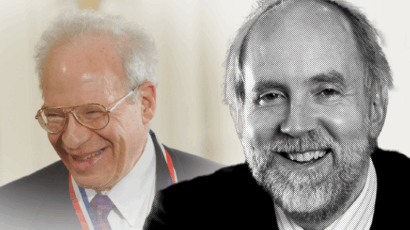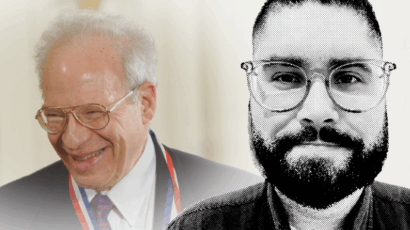How nuclear realists falsely frame the nuclear weapons debate
By Ward Wilson | May 7, 2015
There has never been as much dissatisfaction with the international framework governing nuclear weapons (the Non-Proliferation Treaty) as there is today. The treaty is being reviewed and debated at the United Nations in New York this month, and for the first time in 35 years there are serious concerns that it might tear apart at the seams. Increasingly, there are those who feel strongly that the world would be safer without nuclear weapons, and that the nuclear-armed states (whose promise to work seriously toward disarmament in Article VI of the treaty is one of the tender spots creating anger and resentment) are not fulfilling their obligations.
The potential unraveling of the Non-Proliferation Treaty is causing a careful reexamination of the assumptions that underlie the entire nuclear weapons debate. And like a captain who waits too long to put his boat into dry dock to look for rot under the waterline, the results have been shocking. Much of the intellectual structure supporting the rationale for nuclear weapons is made up of anachronistic ideas from the Cold War. Much of what we thought we knew has turned out to be wrong or inadequate. This has led to some sharp, interesting exchanges. Rather than being a stale debate that occasions stifled yawns, the debate about nuclear weapons is suddenly full of surprising new developments.
Perhaps the most interesting new thinking involves the familiar framing of the debate as a contest between realists and idealists. It turns out this division was not really a distinction created for intellectual clarity but a sort of gerrymandering that aimed to fix the outcome of the debate. This gerrymandering has been so successful, with one side in the debate losing so consistently, that most people now hesitate to be associated with the losers. In the United States, where this framing is most prevalent and shapes the debate most strongly, enthusiastic support for disarmament (except in the most far-off, one-day, maybe-someday terms) is tantamount to professional suicide.
Politicians, for example, rightly see that in the current environment taking an anti-nuclear position is a quick way to be branded as starry-eyed, inexperienced, and unrealistic. Carl Bildt famously said in the summer of 2013, when he was Foreign Minister of Sweden, that states questioning the importance of nuclear weapons are “not serious.” Opinion shapers and thought leaders draw back as well. Journalists, particularly, like to think of themselves as hard-boiled, worldly cynics. Because opposition to nuclear weapons has been cast as “idealism,” journalists who take disarmament arguments seriously risk their credibility with colleagues. Even anti-nuclear activists are likely to see themselves as Don Quixotes, tilting valiantly at targets they know they cannot dislodge, but bound by honor to keep on with the hopeless fight.
Yet the emerging arguments paint this presumed dichotomy—between the hard-headed and the hopeful-hearted—as no more than clever salesmanship on the part of nuclear weapons believers. It works for them to claim that they are “realists” and to cast the debate as “realists v. idealists.” But the position carved out by most nuclear weapons “realists” is so unrealistic it would be laughable … if the matter were not so serious.
The framework of the debate is wrong. This should be a discussion about whether nuclear weapons are useful. The clever (but false) framing of this as a contest about who is a “realist” and who an “idealist” has helped one side regularly win the debate, but it has also biased the discourse, obscured important facts, and dangerously misled governments for 70 years. Grave misconceptions have been fostered. Important failures overlooked. Continuing with this false framing risks wholesale destruction.
Realists v. idealists. Realism is what we do; idealism is what we ought to do. Realism is about the way the world is; idealism is about the way the world could be. Realism is regretfully pessimistic. It grieves that the structure of the world requires that there be poor who suffer, but it acknowledges, as Ralph Waldo Emerson wrote, that “the order of things is as good as the character of the population admits.” Idealism is indefatigably hopeful. It imagines a better, more equitable future and is certain we can attain it. Realism looks to the past, hoping to preserve the traditions and institutions that have provided us with the safety and comfort we currently have; idealism scorns the shortcomings of the current system and boldly looks to the future. Both are essential. Realism preserves past good; idealism propels us toward a better future.
And it is important to be able to distinguish between the two. As Goethe reminded us, “Love is an ideal thing, marriage a real thing; a confusion of the real with the ideal never goes unpunished.” There is nothing so dangerous as a believer convinced that he’s a realist. He sees the features of the world through the distorting lens of hope and faith, but proceeds with the arrogant confidence of a man who believes he cannot put a foot wrong because he sees the minute details of the world in the harsh light of reality. If you value your life, don’t go mountain climbing with a believer who thinks he’s a realist.
Disconcertingly, however, that is exactly what we are doing. We have put our fate in the hands of people who claim to be realists but who show all the symptoms of faith-inspired belief. Nuclear weapons “realists” parade their toughness and insist that only they can bravely face the dark realities. But for all their self-proclaimed hard-headedness, they are not realists. At least, not according to any known definition of that word. They believe in an Enlightenment version of human nature—a complete rationality—that seemed like a stretch even in Rousseau’s time. They shut their eyes and willfully ignore plain facts that contradict their faith. They believe unquestioningly in our ability to turn away from a dark and bloody past of thousands of years of war toward a shining, pacific future. In fact, they argue that we have already arrived at this Jerusalem. They are zealots who are sure they can’t put a foot wrong. If we follow them, we risk plunging headlong off the cliff.
Irrationality and deterrence. Hegel famously claimed that, “What is rational is real, and what is real is rational.” Nuclear weapons proponents are all good Hegelians. Their whole conception of nuclear deterrence is based on rationality. When a crisis occurs and leaders consider going to war, they will—according to nuclear deterrence theory—make a rational calculation of the costs and benefits and then decide what to do. In that moment of crisis and danger, in other words, they will be rational.
The evidence that leaders will likely not be entirely rational in a crisis is plentiful and worn smooth with repetition. Any objective observer would have to admit that the case against complete rationality is strong and persuasive. The interesting question is: Why have nuclear “realists” clung to rationality so long? Why do they continue to insist that it is the cornerstone of nuclear deterrence, when humans are so obviously not that rational? Why is “rational choice”still hotly propounded in nuclear deterrence debates? (Even drearily practical economists and lawyers are giving up on rational actor theories.)
It might have been possible to believe in nuclear deterrence theory in the late 1600s when Voltaire wrote and the Enlightenment was still arcing toward its greatest influence. But serious scholars have known for hundreds of years—and the process of discovery has accelerated in the last two decades—that undivided human rationality is a chimera. The evidence that humans are completely rational, or even mostly rational, simply doesn’t exist. (One Harvard scholar, Daniel M. Wegner, has even written a book, The Illusion of Conscious Will, challenging the idea that we are rational at all. He argues that what we are good at is not thinking rationally but rationalizing. We have an emotion, it impels us to action, and then, in retrospect, we make up a plausible rational reason for what we did. He supports his case with considerable evidence. I am not persuaded. But the fact that such a large and factually supported case could be assembled ought to be a warning sign to those who would argue that human beings are all rational in a crisis.)
Science has shown that we are largely ruled by emotion, instinct, urge, and desire. Certainly human beings can be rational. But the conclusion that leaders in a crisis will always decide on a rational basis simply cannot be true based on the evidence. Believing that we can rely on rationality in a nuclear crisis—that nuclear deterrence will always work—is one of the strongest and clearest indicators that nuclear weapons “realists” are not true realists.
Willfully resisting facts. Realists welcome the fact-stream of daily events that make up history. They dip into it and examine the individual drops. They like the details. Idealists are known for disdaining the everyday and focusing instead on the “big picture.” Details are for accountants; they see the grand sweep of history. Given that realists like facts rather than grand visions, you might imagine that nuclear “realists” love a good factual debate about nuclear weapons history. But you would be wrong. They show a curious reluctance to get involved in the details of the evidence for nuclear deterrence.
The record of nuclear deterrence in Cold War crises is an important proving ground for whether nuclear deterrence can be safe and reliable. To be fair, it is true that nuclear believers refer to this record as a whole as proof that deterrence works. But they seem curiously reluctant to debate the individual facts. This is surprising, because the facts contain a goldmine of debatable points.
Consider: From a certain perspective, one could make the case that the facts of the Cold War crises show that nuclear deterrence has failed quite often. Stalin blockades Berlin in 1948. Why didn’t the US nuclear monopoly persuade him to forego such a risky move? China comes into the Korean war on the side of the North Koreans. Why didn’t the US shifting of nuclear-capable bombers to Guam, a move that was deliberately leaked to the press, deter China from going to war? President Kennedy blockades Cuba in October 1962 during the Cuban Missile Crisis. He knows that if he does, he runs the risk of nuclear war. Why didn’t the danger of nuclear war restrain him? Egypt and Syria attack Israeli forces in the occupied territories in 1973. Why didn’t Israel’s nuclear weapons deter them from launching a war? Argentina attacks the Falkland Islands (which they call the Malvinas) in 1982. Why didn’t British nuclear weapons contain this aggression? And so on.
The point is not that these incidents are proven failures of nuclear deterrence. Each one would have to be examined and weighed individually. The point is that these troubling incidents are rarely examined or debated. Nuclear “realists” haven’t carefully checked, rechecked, and dismissed these arguments; they don’t seem to have looked into them carefully at all. There is a vast literature on the Cuban Missile Crisis, for example, but almost none of it deals with why the risk of nuclear war didn’t deter Kennedy from blockading Cuba. No one writes her thesis exploring the “Falkland Islands Deterrence Failure.” Open the works of the distinguished historian of the Cold War, John Lewis Gaddis, for example, and you will find the question of the failure of deterrence rarely mentioned, much less carefully reviewed and discussed. Rather than delving into the stream of facts to investigate, nuclear “realists” shy away like cats from water.
The lack of real discussion about potential nuclear deterrence failures makes it seem as if nuclear deterrence is not a phenomenon to be carefully and objectively explored, but a faith to be defended and sustained. Genuine realists don’t turn a blind eye to facts—that is an idealist’s sin.
Our new, pacific nature. Of all their claims, the nuclear "realists'" assertion that nuclear deterrence will prevent war is the most damning evidence that they are not interested in reality. Even a cursory inspection of what Winston Churchill once called “the dark lamentable catalog of human crime” shows that human beings have been fighting wars with stubborn persistence for at least 6,000 years. There is not an era of history or a region of the world that has not been visited by war with disheartening regularity. There are sometimes pauses and gaps, but war always returns. It is a savagery that only sleeps.
If humans were to stop fighting wars it would be epochal, a revolution in human nature. Losing our taste for war would be like renouncing our predisposition for religion—it would mean that a trait that had been an integral part of human nature had somehow been forsaken. What advocates of nuclear weapons are claiming, therefore, when they say that human beings will no longer fight major wars because of nuclear weapons, is that these weapons have radically altered human nature. Nuclear weapons, according to nuclear “realists,” have somehow permanently suppressed the heretofore unquenchable desire for war.
It’s a remarkable claim. First, technology rarely changes human nature. Even the slickest, newest technology—take cell phones, for example—have yet to change the nature of love, our kinship relationships, or our tendency to coalesce into tribes.
Second, even when technology does seem to have had an impact (harnessing fire or simple farming, for instance), it has taken hundreds or thousands of years for that impact to be fully felt. Nuclear weapons have only been with us for 70 years. It seems highly unlikely, based on the evidence of human history, that nuclear weapons could have changed our nature so completely in so little time.
But the most important problem with this claim is the way it denies the pessimism that is supposed to characterize realism. Genuine realists quote Hobbes with relish: Life is “solitary, poor, nasty, brutish, and short.” It is idealists who optimistically say that if we can but change our hearts we can change the world.
In the 1960s there was a simple, short book about love called Jonathan Livingston Seagull. Many read it, and many were deeply moved and inspired by it to change their lives. They, and other young people inspired by other books, believed that a new society could be created, a utopian world community that would value peace and love. We would all hold hands and sing. It all seems pretty naive in retrospect.
But the claim that nuclear “realists”are making is just like the claim that those hippies made. The realists say that the urge to make war has been overcome. They say we can now live in peace forever. They say this utopia has already arrived—just, without the singing. Nuclear believers don’t claim that it is a sweet and inspiring book that has changed human nature; they claim it is a tool—a piece of technology—that has brought about the magic transformation. The underlying transformation is the same: Human nature has been fundamentally altered, and what was a constant is now forever gone.
But nuclear weapons have not magically transformed our warlike natures into passivity and goodness. Unbridled war, fought with savage abandon, is still likely, perhaps even inevitable. The belief that large-scale war has been banished is nothing more than dangerous fantasy. All the evidence of history, and everything we know about ourselves, tells us that our warlike natures cannot change overnight. (That is the sound of realism talking.)
Claims that we can change our nature are unsurprising in the mouths of gentle, pot-smoking dreamers. On the lips of nuclear proponents, such claims disbar them from “realist” status.
Nuclear romantics. Far from being realists, proponents of nuclear weapons seem to be “nuclear romantics.” In their enthusiasm for technology, they have exaggerated the weapons’ significance in world affairs, and they have imbued them with quasi-magical powers (which mostly go by the name “nuclear deterrence”). When there is a conflict between the weapons they so admire and the facts, the facts are elbowed roughly aside. They are impressed with nuclear weapons and afraid of them, and they have been superbly good at arguing their case. But their claim that they are realists does not stand up to scrutiny. Realism is pessimistic, even about the powers of technology. Realism doesn’t believe that human nature can be easily remade. And realism believes in facts on the ground.
The entire framework of the nuclear weapons debate is wrong. Both sides have practical, down-to-earth arguments to make. (And both sides also have their share of loopy, unrealistic proponents.) There are pragmatic arguments for nuclear weapons, but there are also sensible, prudent, and pragmatic arguments against nuclear weapons. What is needed is a debate that respects pragmatic arguments on both sides.
The pragmatic case against nuclear weapons is relatively easy to make. They are large, clumsy weapons—more like a bull in a china shop than a sniper’s rifle. For example, physicists Frank von Hippel and Sidney Drell in 1976 tried to construct a limited nuclear weapons attack on the United States, carefully restricted to nuclear targets: submarine bases, missile silos, and bomber bases. The result? Twenty million people die (mostly from fallout blown far downwind). Even when you try to use nuclear weapons in a carefully limited way, huge numbers die. If you want to destroy a target in a city you have to destroy three quarters of the city to do it. How does that make sense?
The crooked line drawn across the map of this debate claiming to divide realist from idealist is dangerously misleading. This should not be a debate about the realism (or not) of the debaters. It should be a debate about the utility of nuclear weapons. But for 60 years the question of utility has been elided. If we had framed the debate as being about utility, we would have quickly discarded a whole series of fallacious issues, beginning with the “bigness is decisive” canard.
Bigness is not the yardstick against which to judge nuclear weapons. Utility is the yardstick. Bigness is not the same as utility, otherwise workmen would ask their assistants, “Did you bring the biggest tool for the job?” rather than whether they brought the right one for the job. Utility is about the appropriateness of means to ends. Imagine trying to fix a watch with a sledgehammer, and you get a rough idea of what it would be like to try to fight a war with nuclear weapons. The utility of nuclear weapons is the key to deciding whether they should go or should stay. Are nuclear weapons ever the right tool for the job? That is the question we should be discussing.
The fact is the entire trend of warfare is away from big weapons. Both conventional and nuclear weapons follow this trend. For nuclear weapons it is possible, after all, to build hydrogen bombs as big as you want. Add more hydrogen and there is no theoretical limit to the size of the explosion you can create. But no nation has been building bigger and bigger, more and more destructive weapons. Over the last 50 years, the yield of nuclear warheads has consistently shrunk.
The trend is perhaps even more evident in conventional weapons. Smaller, smarter, more accurate weapons are increasingly used in warfare. Smart bombs, drones with small missiles—there is an unmistakable evolution toward weapons that kill the fewest number of bystanders possible. The future of weapons is small, smart, accurate weapons, not big, blundering weapons that cause out-sized destruction.
It may be that the remarkable record of 70 years without any use of nuclear weapons is evidence of their awesome, horrifying nature. Or it may be evidence that they are just not very good weapons.
There is a debate here, an important debate about the future of nuclear weapons (and potentially about the shape and future of civilization). But it’s not about idealism. There’s nothing idealistic about saying we should get rid of dangerous and ineffective technology. That’s just common sense—just pragmatism.
The ground is shifting under the nuclear weapons debate. What was once steady and unshakable is now doubtful and vague. As the delegates from around the world review the Non-Proliferation Treaty, new arguments and new ideas about what to do with nuclear weapons are surfacing and taking hold. After 70 years, the world of nuclear weapons is changing.
Proponents of nuclear weapons have long framed this debate in a way that helps them win, but they have obscured and confused the issues. Those old framings, however, are crumbling. This is no longer a debate about the nature of the debaters—who is a realist, who an idealist? Who is tough? Who is weepy? This is not about the debaters; it is a vitally important discussion about enormously dangerous weapons. Are nuclear weapons too dangerous and clumsy to still be useful? This is the question—the pragmatic question—that the delegates at the UN are increasingly asking.
Together, we make the world safer.
The Bulletin elevates expert voices above the noise. But as an independent nonprofit organization, our operations depend on the support of readers like you. Help us continue to deliver quality journalism that holds leaders accountable. Your support of our work at any level is important. In return, we promise our coverage will be understandable, influential, vigilant, solution-oriented, and fair-minded. Together we can make a difference.
Topics: Analysis, Nuclear Weapons
